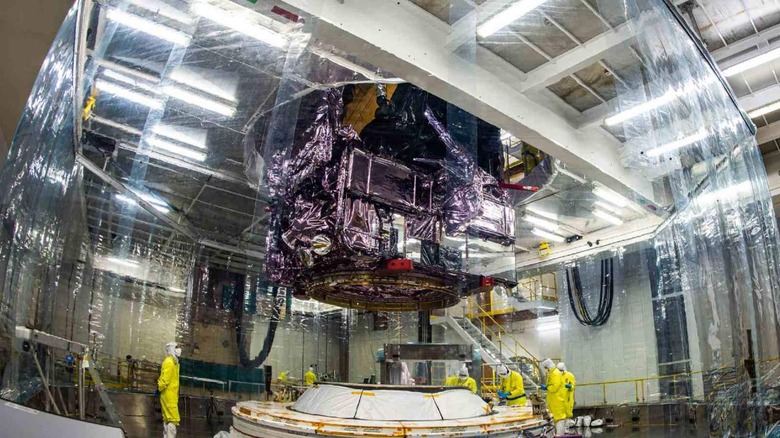James Webb Space Telescope Delayed Again: New NASA Launch Plan
In late November, NASA published a brief update on the James Webb Space Telescope, revealing that its launch had been delayed a few days after an incident potentially compromised some of its components. Now, nearly one month later, the space agency is back with another update, and though it isn't the best news, the launch may still happen in the near future.
The James Webb Space Telescope is a massive project years in the making, one that has faced many hurdles and delays. Up until the November delay announcement, NASA had planned to launch the new space telescope on December 18 using Arianespace's Ariane 5 rocket. An "incident" forced the space agency to bump the date ahead to no earlier than December 22.
The reason, NASA had said, was due to a clamp band that released when it shouldn't have, causing a vibration to pass through the telescope. The delay was intended to give NASA and its partners time to evaluate the telescope and determine whether the vibration had caused any issues with its components. It only took a couple of days for the space agency to confirm the telescope would hit its December 22 launch date, but now things have changed.
NASA published a very brief update about the James Webb Space Telescope's status on one of its blogs, stating that the new launch date will be no earlier than December 24. This is two days later than the original extended date the space agency had provided.

This latest delay is due to another relatively minor issue, namely a problem with the communication between the space telescope and its launch vehicle, the Ariane 5. A couple of extra days will give the team time to investigate and resolve the problem, which will hopefully be a simple task. NASA promises to return with more info about when it expects the observatory to launch, with the update coming within the next couple of days.
Though this is unfortunate news, it is a small matter in the grand scheme of things. The James Webb Space Telescope, which will exceed Hubble's capabilities and usher in a new era of space observations, has faced many problems throughout its development, including ones that resulted in multi-month delays.
For example, the original launch plan was delayed from 2018 all the way through to May 2020 to allow for extra testing. However, the date was bumped ahead nearly a year to March 2021, which proved to be unfortunate timing — the newly declared pandemic forced another big delay until October (via Wikipedia).
The Ariane 5 rocket and a potential readiness issue resulted in the delay from October to November 2021, which was then bumped ahead to the original December 18, 2021, launch date. The aforementioned vibration issue triggered the delay to December 22, and now this communication issue has pushed the launch ahead by at least two days to December 24.
